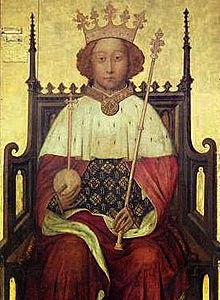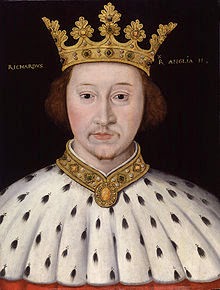
"It is a most remarkable thing. I sat down with the full intention of writing something clever and original; but for the life of me I can't think of anything clever and original -- at least -- not at this moment."
Jerome K. Jerome is an author best known for his comic travelogue, Three Men in a Boat, which I highly recommend as it is totally hilarious. Idle Thoughts of an Idle Fellow is a collection of essays; written with Jerome's signature witty reparteé and lively humour, the essays are titled:

- On Being Hard Up
- On Being in the Blue
- On Vanity and Vanities
- On Getting On in the World
- On Being Idle
- On Being In Love
- On the Weather
- On Cats and Dogs
- On Being Shy
- On Babies
- On Eating and Drinking
- On Furnished Apartments
- On Dress and Deportment
- On Memory
Yet while Jerome's anecdotes are amusing and give the reader a good chuckle, he also imparts wisdom to his writing. In On Vanity and Being Vain, he, at first, pokes fun at the vanity of all men, but concludes that we all must be vain in the right manner.
"Let us be vain, not of our trousers and hair, but of brave hearts and working hands, of truth , of purity, of nobility. Let us be too vain to stoop to aught that is mean or base, too vain for petty selfishness and little-minded envy, too vain to say an unkind world or do an unkind act. Let us be vain of being single-hearted, upright gentlemen in the midst of a world of knaves. Let us pride ourselves upon thinking high thoughts, achieving great deeds, living good lives."
Jerome also uses wonderfully descriptive sentences, that weave a vibrant and idyllic world around the reader:
"And oh, how dainty is spring ---- Nature at sweet eighteen! When the little, hopeful leaves peep out so fresh and green, so pure and bright, like young lives pushing shyly out into the bustling world; when the fruittree blossoms, pink and white, like village maidens in the Sunday frocks, hide each whitewashed cottage in a cloud of fragile splendor; and the cuckoo's note upon the breeze is wafted through the woods! And summer, with its deep, dark green, and drowsy hum --- when the rain-drops whisper solemn secrets to the listening leaves, and the twilight lingers in the lanes! ...."
And, of course, one can't say enough of his humour:
"But that's just the way. I never do get particularly fond of anything in this world, but what something dreadful happens to it. I had a tame rat when I was a boy, and I loved that animal as only a boy would love an old water rat; and, one day, it fell into a large dish of gooseberry-fool that was standing to cool in the kitchen, and nobody knew what become of the poor creature until the second helping."
If you want a book to make you feel good, read a book by Jerome K. Jerome. His writing is refreshing, light, profound, humorous, beautiful, timeless and educational, all at the same time. And you won't stop laughing!
© Cleo and Classical Carousel, Years 2014 - 2016. Unauthorized use and/or duplication of this material without express and written permission from this blog’s author and/or owner is strictly prohibited. Excerpts and links may be used, provided that full and clear credit is given to Cleo and Classical Carousel with appropriate and specific direction to the original content

 Log in with Facebook
Log in with Facebook 







.jpg)


_-_St_Macarius_of_Ghent_Giving_Aid_to_the_Plague_Victims_-_WGA16655.jpg&container=blogger&gadget=a&rewriteMime=image%2F*)













